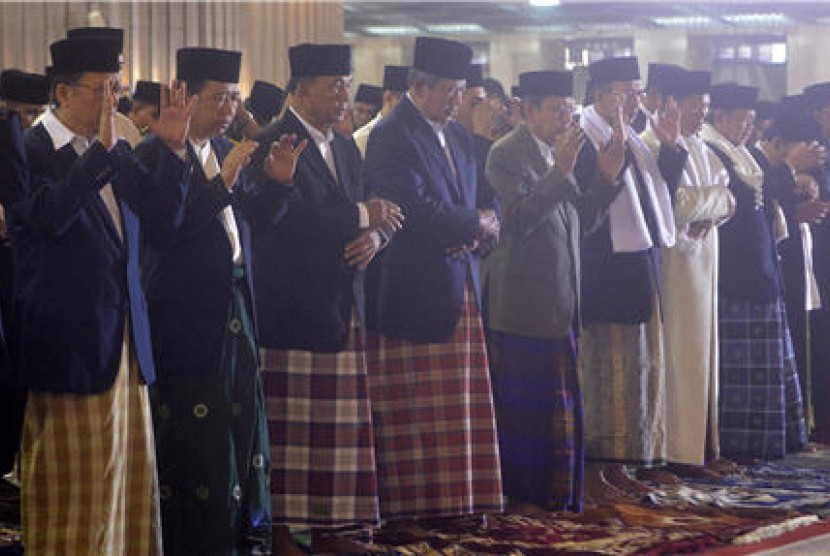REPUBLIKA.CO.ID, JAKARTA -- Pol-Tracking Institute conducted a public survey for four years performance of government of President Susilo Bambang Yudhoyono and Vice President Boediono. This survey was followed by 2,010 participants in 33 provinces on September 13-23, 2013. They conducted face to face interviews with margin of error of plus or minus 2.19 percent and confidence level of 95 percent.
Majority of participants or 71 percent said that they were not satisfied with performance of Yudhoyono-Boediono in economics. Dissatisfaction was due to the soaring price of nine food commodities (basic needs) lately. Only 21 percent of participants said that they were satisfied, seven percent did not know the answer, and the rest did not answer.
Member of Commission XI of House of Representatives, Achsanul Qosasi explained that issues related to basic needs could not be separated from synchronization between central and local government's policy. He thought that several local governments did not follow National Medium Term Development Plan (RPJMN) 2010-2014 designed by central government.
"Local government tends to prioritize political interests. For example, coordination between central and local government to import red pepper, onion and soybean are not parallel. As a result, Indonesia experienced the increase of food prices instantly. They prefer to import, compared to improve farmer empowerment," Qosasi said last weekend.
Qosasi assessed that performance of Yudhoyono-Boediono in economic growth had been good. In the last four years, economic growth has been above six percent.


